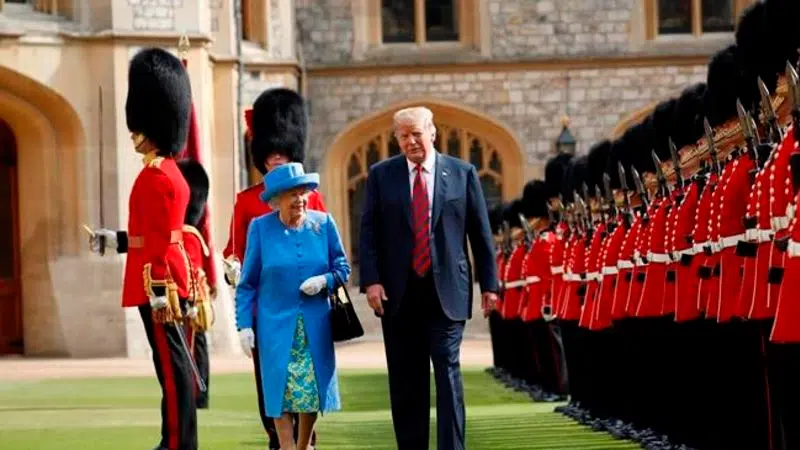
The Trumps are coming: London ready for controversial visit
LONDON — It’s a unique odd couple: A 93-year-old sovereign who has made a point of keeping her opinions to herself during her long reign is hosting a 72-year-old reality-TV-star-turned-president who tweets his uncensored thoughts daily to 60 million followers.
For Queen Elizabeth II, Britain’s unflappable monarch, the arrival of U.S. President Donald Trump, his family and his armoured entourage on Monday means a full day of ceremony and toasts topped by a magnificent banquet at Buckingham Palace.
Yet beneath the pomp and ceremony, there are differences aplenty.


